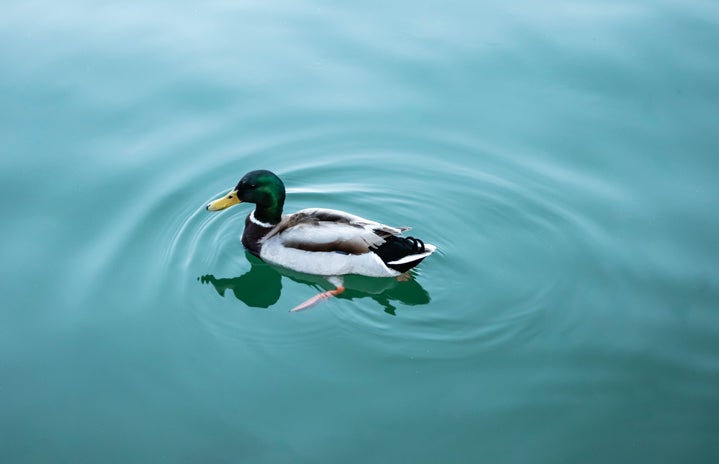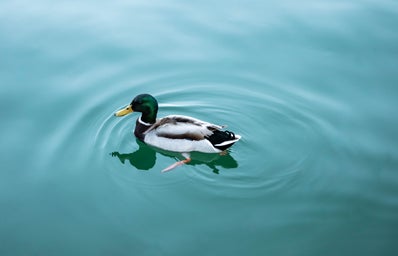Maybe it’s just my algorithm, but my Instagram and TikTok explore pages have been full of ducks. And not just wild ducks, but domesticated ducks living in houses and wearing diapers. These videos and images are flooded with thousands of likes and views and a paralleled amount of comments expressing a desire for a pet duck.
And I am equally guilty of this obsession with the idea of owning a pet duck. I have a famous duck as the wallpaper on my phone, which leads many of my friends to think that I have an obsession with ducks. This then leads to me perpetuating the idea that I am obsessed with ducks.
In doing so, I have done much research about how to properly own a duck.
Ducks are like chickens, except smarter and more social. Many people have kept chickens as pets, so why not keep a duck? However, through the power of the media, many believe that keeping a duck is more like raising a dog or a cat, which is not the case. Ducks in the wild are rarely ever seen by themselves. They are usually surrounded by others of their kind, so if you are looking to adopt a duck, you will need at least two. However, most duck breeders and egg providers are only allowed to sell duck eggs in batches of three or four.
Ducks also need an outside area to roam around in. A duck may be smart, but it would take years of evolution for a duck to learn how to become potty trained. Unless you want your duck to create a feces carpet in your house, you might want to consider an open space for them. Ducks are also dependent on water, and their body secretes oil that allows them to dry quicker. Without water, their body may secrete too much oil, so a constant pool of water is important for ducks to thrive.
Just as humans are clingy, so are ducks. They are smart enough to recognize their owner’s voice and may even quack and pester them for a treat. They may allow their owners to rub their bellies and pet them if they feel comfortable enough. The more interaction that you have with a duck, the sooner they will feel safe around you, similar to human relationships.
The ethics of domestication has always been controversial, and as ducks and other animals start to make unconventional pets that are flaunted in the media, we need to be informed on how to properly care for them. These accounts posting about their unusual domesticated animals creates a demand for more unusual animals as pets.
Although this may not be apparent to those posting these images and videos, many will subconsciously or even consciously begin to mimic the actions of these creators by domesticating their own animals.
Education about the domestication of each type of animal will need to be made publicly available as more and more people become interested in the domestication of obscure animals.


